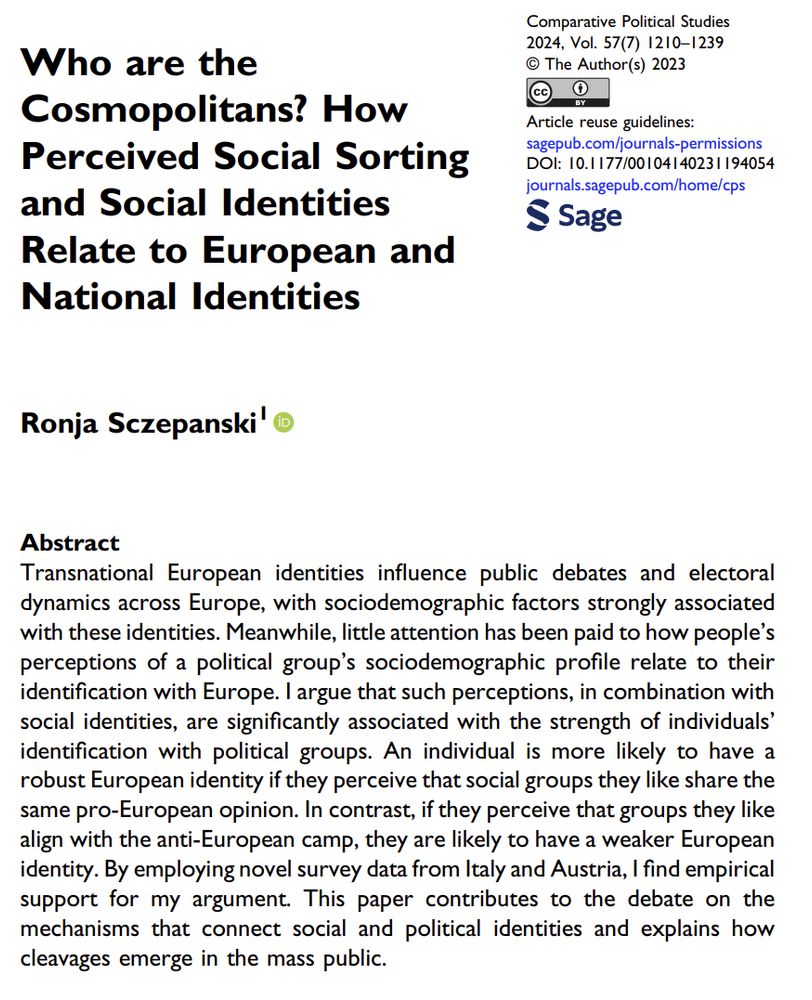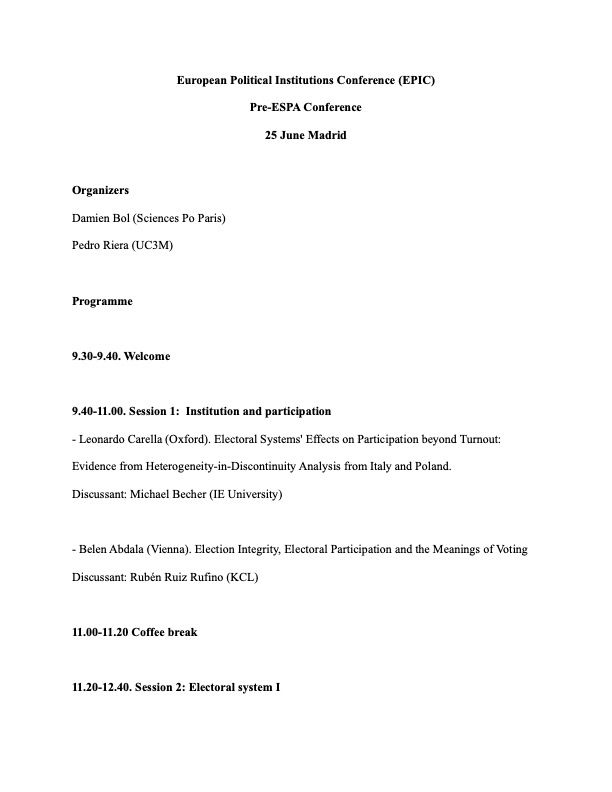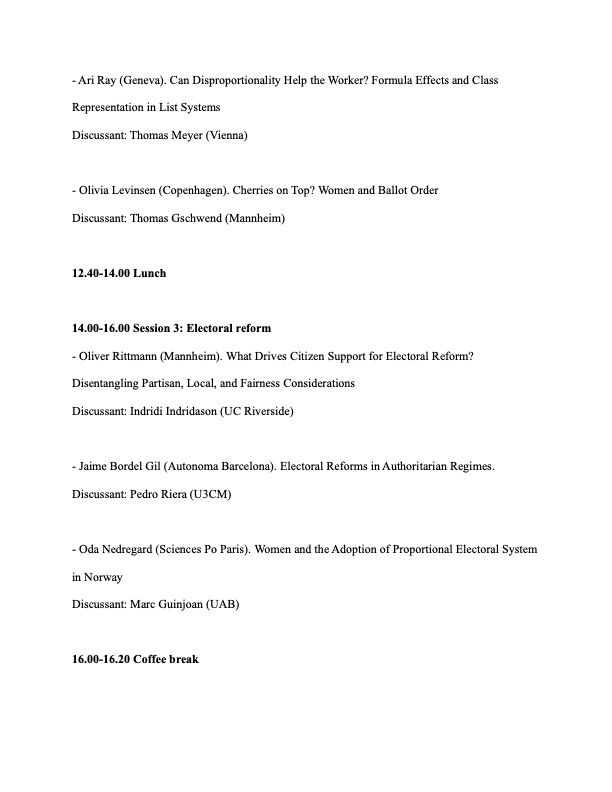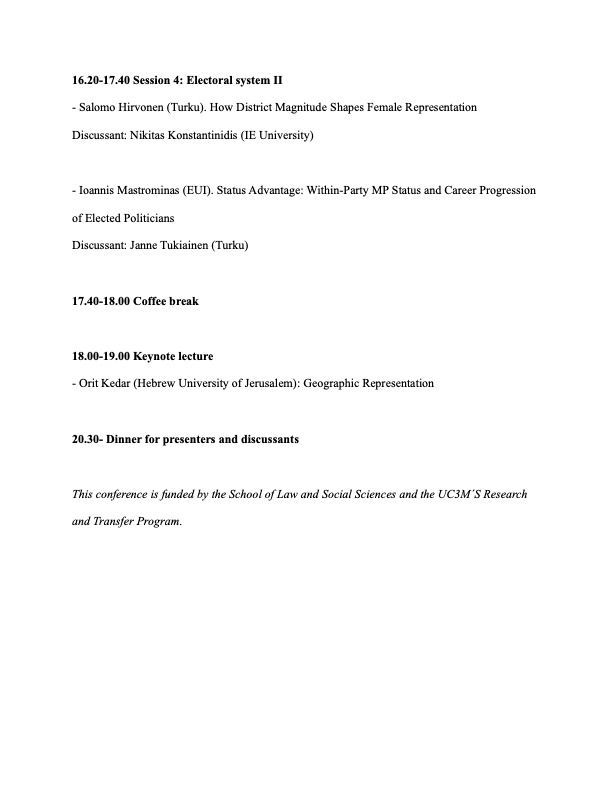Why do politicians often misperceive what citizens' policy positions are?
@simonotjes.bsky.social and I study ~10,000 estimates of public opinion by politicians in Denmark & the Netherlands to uncover the sources of these (mis)perceptions
Thread 🧵1/10

Reposted by: Damien Bol, Brendan Nyhan, David R. Miller , and 1 more Damien Bol, Brendan Nyhan, David R. Miller, Ethan Porter
thread below ⬇️

Reposted by: Damien Bol, Dani Rodrik, Federica Genovese

Reposted by: Damien Bol
Analyse de la crise de confiance politique par @damienbol.bsky.social, enseignant-chercheur @cevipof.bsky.social @sciencespo.bsky.social
sur le plateau du 19/20 Paris IDF @francetv.bsky.social
www.france.tv/france-3/par...
cc @scpo-research.bsky.social

by Damien Bol
Reposted by: Damien Bol
by Damien Bol
This PhD position is part of a research project that examines how growing income inequality can reshape the way democracy functions by influencing both political discourse and public opinion.
More info here:
www.academictransfer.com/en/jobs/3542...

by Damien Bol
Dans les pays utilisant du ranked-choice par exemple, les partis finissent souvent par donner des consignes de vote stratégique à leur supporters.
by Damien Bol
ou là : journals.sagepub.com/doi/10.1177/...

by Damien Bol
A lire ici : shs.cairn.info/revue-revue-...
@cevipof.bsky.social @edr-sciencespo.bsky.social
Fin/

by Damien Bol
Fait marquant : au 1er tour, le vote stratégique est surtout pratiqué par les électeurs plus âgés et politisés. Cela contribue donc à un déficit de représentation pour les autres.
4/
by Damien Bol — Reposted by: Jean‐François Daoust
👉 Il y en a plus au 2nd tour, quand le choix est restreint.
👉 Mais même au 1er tour, 7-8% ont voté utile plutôt que pour leur parti préféré.
C’est comparable aux scrutins à un tour britanniques ou canadiens.
3/

by Damien Bol
2/
by Damien Bol — Reposted by: Jean‐François Daoust
Après avoir beaucoup travaillé sur le vote utile, aussi appelé vote stratégique, nous testons nos méthodes sur le cas français.
1/

Reposted by: Damien Bol, Cas Mudde, David M. Farrell , and 3 more Damien Bol, Cas Mudde, David M. Farrell, Michelle Dion, Matthew Lebo, Claire L. Adida
by Tarik Abou‐Chadi — Reposted by: Damien Bol, Simon Hix, Sara B. Hobolt , and 22 more Damien Bol, Simon Hix, Sara B. Hobolt, Fabrizio Gilardi, Ruth Dassonneville, Stefan Müller, Stefanie Walter, Jürgen Maier, Catherine E. De Vries, Alexander Wuttke, Lucas Leemann, Justin H. Kirkland, Hanna Bäck, Andreas Dür, Janne Tukiainen, Mirya R. Holman, Alessandro Nai, Sven‐Oliver Proksch, Werner Krause, Raúl Pacheco-Vega, Federica Genovese, Bjørn Høyland, Tom Louwerse, Alexandra Cirone, Anita Gohdes
📢 Call for Papers: EPSS 2026 – Belfast
🗓️ June 18–20, 2026
📍 ICC Belfast
📬 Deadline: Nov 7, 2025
🧵
We are hiring 2 postdocs for the new Advertising Democracy project at Aarhus University.
We are looking for researchers who are passionate about advertisements & citizens’ democratic values in Western democracies.
Feel free to share!👇🏾
bss.au.dk/en/about-aar...

by Damien Bol

Reposted by: Damien Bol
journals.sagepub.com/doi/full/10....

by Damien Bol
by Damien Bol
by Damien Bol

by Damien Bol — Reposted by: Damien Bol, Simon Hix, Sara B. Hobolt



by Damien Bol
by Damien Bol
Reposted by: Damien Bol


by Damien Bol

